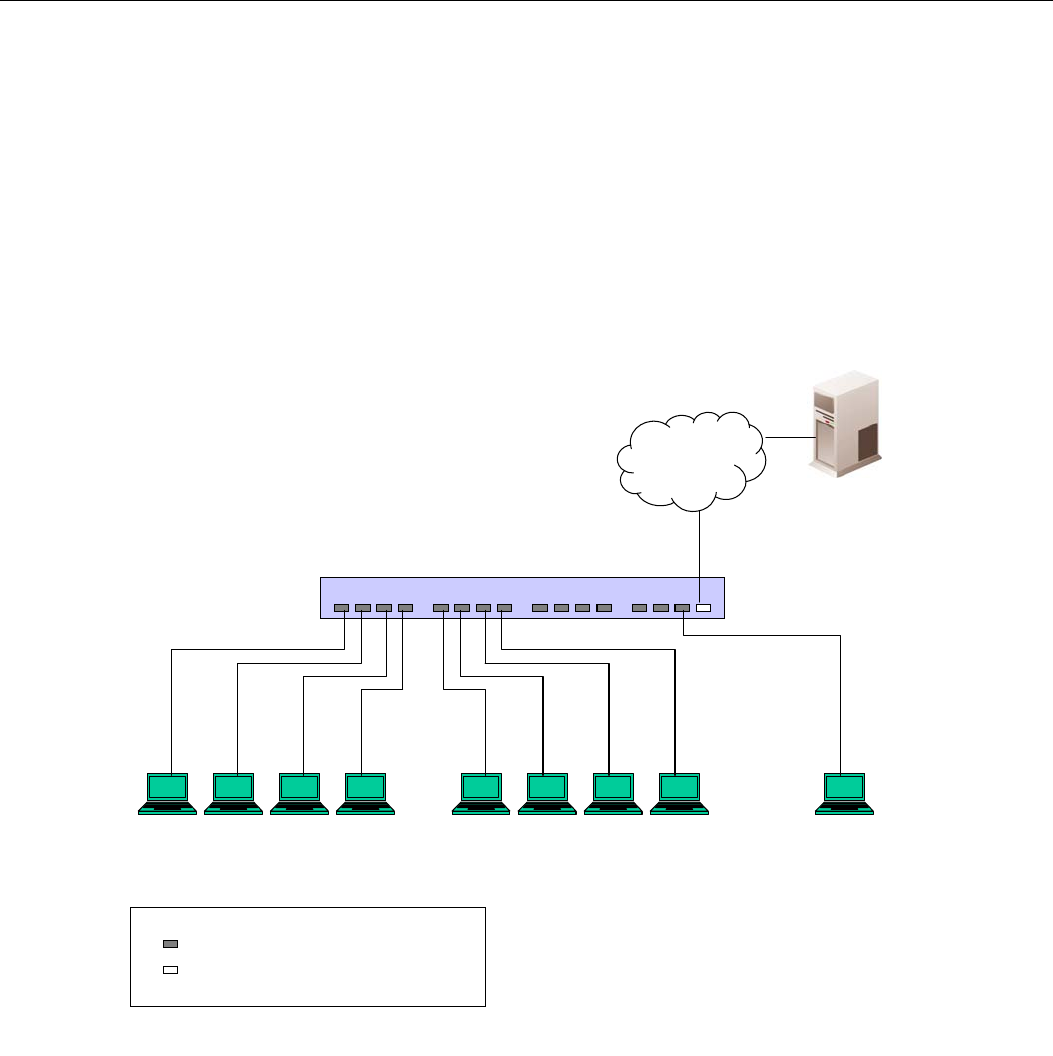
DES-3010F/DES-3010FL/DES-3010G/DES-3016/DES-3018/DES-3026 Fast Ethernet Switch Manual
144
Understanding 802.1X Port-based and MAC-based Network Access
Control
The original intent behind the development of 802.1X was to leverage the characteristics of point-to-point in
LANs. As any single LAN segment in such infrastructures has no more than two devices attached to it, one
of which is a Bridge Port. The Bridge Port detects events that indicate the attachment of an active device at
the remote end of the link, or an active device becoming inactive. These events can be used to control the
authorization state of the Port and initiate the process of authenticating the attached device if the Port is
unauthorized. This is the Port-Based Network Access Control.
Port-Based Network Access Control
…
802.1X
Client
802.1X
Client
802.1X
Client
802.1X
Client
802.1X
Client
802.1X
Client
802.1X
Client
802.1X
Client
802.1X
Client
Network access controlled port
Network access uncontrolled port
RADIUS
Server
Ethernet Switch
Figure 10- 10. Example of Typical Port-Based Configuration
Once the connected device has successfully been authenticated, the Port then becomes Authorized, and all
subsequent traffic on the Port is not subject to access control restriction until an event occurs that causes the
Port to become Unauthorized. Hence, if the Port is actually connected to a shared media LAN segment with
more than one attached device, successfully authenticating one of the attached devices effectively provides
access to the LAN for all devices on the shared segment. Clearly, the security offered in this situation is
open to attack.


















